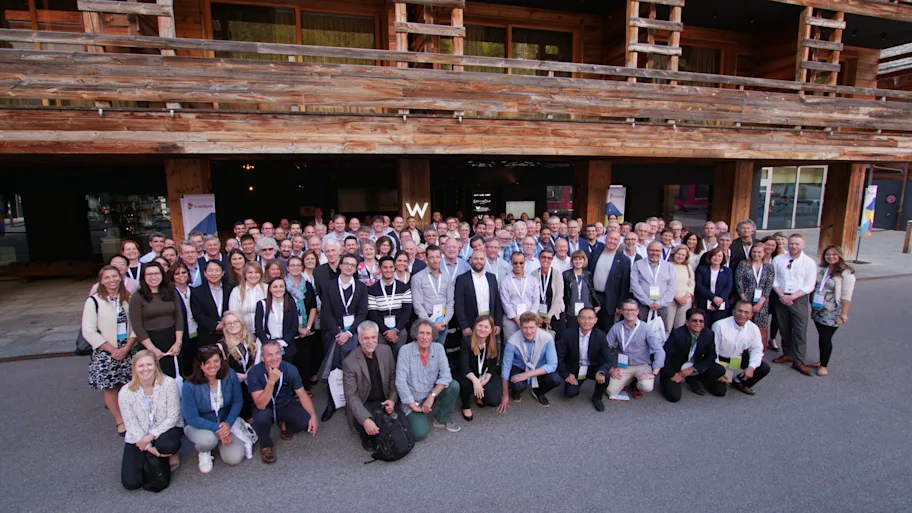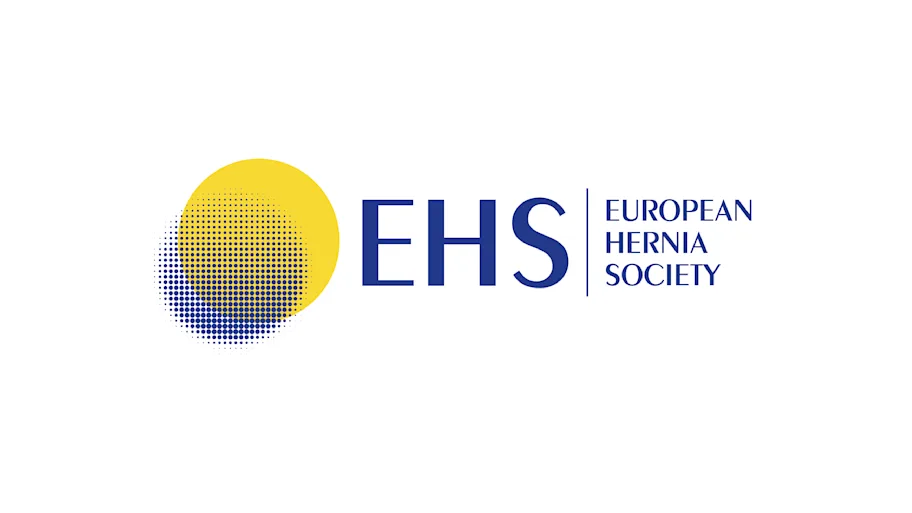
- Science news
- Open science and peer review
- Falling Walls 2023: How open science and systems thinking can save the planet
Falling Walls 2023: How open science and systems thinking can save the planet
Open access publisher Frontiers and the Frontiers Research Foundation joined this year’s Falling Walls Science Summit held on 7-9 November in Berlin, Germany. The Falling Walls Science Summit is a prominent gathering that unites experts from various scientific disciplines to explore groundbreaking research and foster collaborative solutions for the challenges of our time. As a global platform for scientific exchange, this annual event serves as a catalyst for innovation, fostering interdisciplinary dialogue, and promoting breakthrough thinking.
The three-day event includes inspiring keynotes, thought-provoking discussions, and exciting pitches from some of the most innovative minds in science and technology, exploring how scientific breakthroughs can pave the way towards a more equitable and sustainable future. These breakthroughs cover a diverse range of topics, from physical sciences, life sciences, sciencepreneurship, art and science, and planetary health to discovering earth and space, emerging talents, engineering and technology, and social sciences and humanities.
The Falling Walls Foundation and Frontiers partnered to organize the Climate Action Future plenary table on 8 November, which addressed the slow and inadequate progress in climate action. Featuring a group of leaders in science, policy, and academic publishing, the plenary investigated the reasons behind the failure, emphasized the need to reinvigorate COP process with solution-driven methods in mind, and explored the role of open science in accelerating solutions, mobilizing stakeholders, and triggering a Green Renaissance. Vivienne Parry OBE, science journalist, author, and former BBC presenter, moderated the discussion, which featured:
Johan Rockström, Director, Potsdam Institute for Climate Impact Research
Massamba Thioye, Executive, The UN Framework Convention on Climate Change (UNFCCC)
Lars Peter Riishøjgaard, Director, Global Greenhouse Gas Watch, World Meteorological Organization
Lee Howell, Executive Director, Villars Institute
Frederick Fenter, Chief Executive Editor, Frontiers

Johan Rockström. Photo credit: Frontiers, Falling Walls Foundation
With climate change being one of the most pressing challenges of our time, Johan Rockström, director of the Potsdam Institute, emphasized that the upcoming COP28 must be one of change. “Now we need to deliver. We need to be accountable; we need to align with science, we need to put the money on the table, and we have to do it in an equitable way. Now it’s time to pull up our sleeves and get serious. COP28 must be the mitigation COP. It must be the meeting when we start really showing credible pathways to phase out fossil fuels.”
Panelists also talked about other essential steps to bring about systemic change and restore the planetary boundaries to their safe zones. Massamba Thioye, executive of the UNFCCC, captured these key areas when he said: “We will not be able to address the challenge of climate and sustainability if we do not do something with our inner development goal. This can be articulated around three main principles: caring, sharing, and daring. Firstly, we need to genuinely care about the well-being and needs of the people and the planet. Secondly, we need to share knowledge, which is why open science is extremely important. And thirdly, we need to set goals and targets not on the basis of what we believe is possible, but on what is needed.”
The plenary echoed the three principles of caring, sharing, and daring raised by Thioye. Frederick Fenter, chief executive editor at Frontiers, highlighted the significance of sharing knowledge through open science and doing so with urgency. He referenced the lessons learned from the COVID-19 pandemic and how openly shared research as part of the CORD-19 dataset sparked innovation, resulting in millions of lives saved. This same can, and must, be done with the climate crisis. Fenter said: “Open science has to be part of the toolkit of solutions in terms of addressing the climate emergency. Open science levels the playing field by providing the full corpus of scientific knowledge to all researchers to then build upon, enables useful tools such as generative AI to be trained on validated data without any intellectual property blockers to accelerate productivity, and builds public trust.”

Fred Fenter. Photo credit: Frontiers, Falling Walls Foundation
To unlock the world’s science, Fenter introduced the Open Science Charter, an initiative by the Frontiers Research Foundation, which urges governments, research institutions, and funders, as well as industry leaders to commit and act in four main areas:
Universal and unrestricted access to scientific knowledge by 2030: Commit to transitioning all published research articles to fully open-access models by the end of the decade.
Uphold peer-review quality: Preserve and champion the core values of scientific publishing, including registration, validation, certification, and perpetual conservation of scientific findings.
Transparent pricing linked to quality: Adopt transparent financial models that directly correlate the price of publication with the quality of services offered.
Strengthen trust in science: Make the knowledge available to the public who helped pay for it and who will benefit from its deployment.
Open science can help create a world where scientific knowledge is accessible to everyone, where society is empowered to make informed decisions along the way, and where the collective efforts of millions of scientists around the world can lead to innovative solutions and a healthy and sustainable future. This is especially important in the context of the current climate crisis. As Lars Peter Riishøjgaard, director of the Global Greenhouse Gas Watch, said: “We are not treating this as a scientific problem, which is what the text of the Paris Agreement actually says that we should.” We need science-based action from all stakeholders, particularly policymakers, to reverse the current trend of rising emissions and achieve the goal of net-zero by 2050.
While much of the discussion centered on the need to act fast and meet the terms outlined in the Paris Agreement in preparation for COP28, there was also consideration for the long-term perspective. Future generations will be a crucial component, which is why it’s important to engage with them now, help them cope with their worries about the climate, and empower them to act by demonstrating how they can make a positive difference. Lee Howell, executive director of the Villars Institute, used the analogy of a sprint and a marathon: “There’s [an] emergency, but there’s [also] a longer-term piece. Working backwards, let’s assume that we’re able to fulfill the goals that we’ve set for 2050. The people that will be literally responsible for driving, owning, shaping the solutions, where are they today? Well, they’re most likely in high school or middle school. So, we need to really help them sort of get over this wall of eco-anxiety and get to a place of eco-ambition.”
The theme of accelerating solutions for the most effective mitigation and adaptation strategy, developed in the Climate Action Future plenary table was picked up and further developed during the Planetary Boundary Science: Advancing Science to Save the Planet round table later that day. The round table explored whether we are investing in the right science and directing our research efforts to ensure humanity can continue to thrive within a safe operating space. Jean-Claude Burgelman, director of the Frontiers Planet Prize, professor of Open Science Policy (Free University of Brussels), and former Head of Unit for Open Science Policy at the European Commission, moderated the round table, which included:
Johan Rockström, Director, Potsdam Institute for Climate Impact Research
Wendy Broadgate, Global Hub Director, Future Earth
Maria Nilsson, Professor, Umeå University; Frontiers Planet Prize national champion 2023, Sweden
Paul Behrens, Associate Professor, Leiden University; Frontiers Planet Prize international champion 2023, the Netherlands

L to R: Johan Rockström (Potsdam Institute), Maria Nilsson (Umeå University), Paul Behrens (Leiden University), Wendy Broadgate (Future Earth), Jean-Claude Burgelman (Free University Brussels). Photo credit: Frontiers, Falling Walls Foundation
The panelists agreed that planetary boundary science has significantly matured in the past decade, but there is a clear need for more science that connects different disciplines and promotes a holistic view of the earth’s systems. This integrated approach is what the planetary boundaries framework itself is based on: science about the great acceleration, ecological tipping points, the resilience of our planet and complex dynamics that affect the future of humanity on earth. The release of the third major assessment of the planetary boundaries shows that progress is being made in understanding each planetary boundary with greater precision. Yet, researchers don’t have complete explanations for all the events we are seeing with rising ocean temperatures, rapidly melting ice caps, and extraordinary temperatures. This is where scientists need to improve the precision defining these planetary uncertainties.
Existing models do not predict the level of acceleration the planet is currently experiencing, meaning more research is needed to forecast where we are headed. Tipping points can be refined by studying the earth’s systems more closely to better understand their interconnectivity. As Johan Rockström, director of the Potsdam Institute for Climate Impact Research, said: “We need science to be the voice of the earth system.” We can leverage science to study different scenarios and adaptations we may have to implement and identify the pathways to make society more resilient. This knowledge can shape the narratives we share about the various potential future scenarios humanity may face on this planet. Paul Behrens, associate professor at Leiden University and 2023 Frontiers Planet Prize international champion, explained: “The more optimistic side is then painting a vision for the future. Can you build a narrative around [a more resilient future], instead of this small, scary future that we’re heading to?”
Scientific research in these interconnected areas is essential for earth science to guide sustainable development. It can allow us to better define boundaries and their interconnectivity, allocate budgets, and share resources more equitably for the future. Funding institutions as well as initiatives like the Frontiers Planet Prize support the science behind these solutions. Jean-Claude Burgelman, director of the Frontiers Planet Prize, said: “The Frontiers Planet Prize is a competition based on scientific excellence, contributing to better understanding [of planetary science], showing potential ways forward and potential ways to scale, and connecting several of the boundaries so that we don’t have micro solutions, but rather something that can be planetary.”
Rockström, chairperson of the Frontiers Planet Prize’s Jury of 100, added: “The Frontiers Planet Prize really is all about giving scientific evidence of whether we can actually follow pathways back to a safe landing. That’s the combination – the beauty – of quantifying the safe boundaries, translating them to policy and governance, and accelerating transformation pathways.”
While this type of interdisciplinary research is still relatively new, there is already a lot of existing knowledge and evidence that leaves no room for inaction. And the urgency for action is palpable, including dire need for fundamental steps to restore the health of the planet in areas such as food systems, the energy transition, biodiversity, and the climate. The challenge lies in improving and enhancing the dialogue between science and policy. Wendy Broadgate, global hub director for Future Earth, said: “We, scientists, need to do more of talking the language of politicians, talking about risks, talking about the economic effects. And we need to be engaging with the public because public opinion is so important.”
Complex problems like climate change require complex solutions and improving communication channels is a vital part of that change. Maria Nilsson, professor at Umeå University and 2023 Frontiers Planet Prize national champion for Sweden, said: “We need changes at the personal level, the institutional level, and the societal level.” Effective communication around science and systems thinking will enable better collaboration with not only governments, but also with innovative businesses, organizations, and the public. Working at different levels, everyone will have a distinct role to play, and even the most dedicated minorities can influence the majority norms.
More insights from the panel are available on the Frontiers Policy Labs here.
Full recordings of each session can be watched here:
About Frontiers
Frontiers is the 3rd most-cited and 6th largest research publisher. We publish groundbreaking discoveries by the world’s top experts. Scientists empower society and our mission is to accelerate scientific discovery by making science open. We place the researcher at the center of everything we do and enable the research community to develop the solutions we need to live healthy lives on a healthy planet. Featuring custom-built technology, artificial intelligence, and rigorous quality standards, our research articles have been viewed more than 2.3 billion times, reflecting the power of research that is open for all.
About the Frontiers Planet Prize
The Frontiers Planet Prize is a global competition for scientists and research institutions to propose solutions to help the planet remain within the safe operating space of any one or more of the 9 planetary boundaries. Launched by the Frontiers Research Foundation on Earth Day 2022, the prize aims to mobilize nations and the global community of scientists conducting research on earth system science. The inaugural Awards Ceremony took place at Frontiers Forum in Montreux in April 2023.
About the Frontiers Research Foundation
The Frontiers Research Foundation is a not-for-profit organization based in Switzerland, which was created by Kamila and Henry Markram, neuroscientists from the Swiss Federal Institute for Technology (EPFL). It raises funds to support programs that accelerate scientific solutions for healthy lives on a healthy planet.






